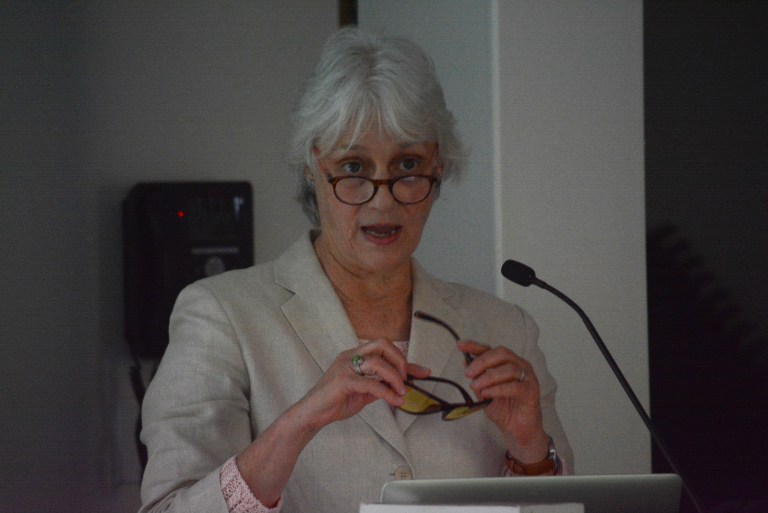
An environmental expert explored the downsides of technology such as light emitting diodes, wireless fiber optics and smart meters at the Great Neck Library on Wednesday night, in hopes of educating the public about potential dangers the emerging technology may possess.
Patti Wood, the founder and head of Grassroots Environmental Education, told the audience of dozens that modern wireless technology like cell phones, towers and routers run the risk of higher exposure to radiofrequency radiation – labeled by the World Health Organization as “possibly carcinogenic.”
She also highlighted some downsides of LED lights through studies, like one at the University of California at Irvine showing the presence of lead and other chemicals within the bulbs.
She also said the LED lights do not give off near-infrared radiation to spur retina cells to heal, all while damaging them and photoreceptors with blue light – the shortest light wavelength.
“They are indisputably more energy efficient but they also present an array of potential health problems,” Wood said, recommending the use of specially-tinted yellow glasses. “In fact, LED lights actually have a very dark side, which is really news to a lot of people.”
Wood endorsed the use of incandescent bulbs, which are a more yellow light and landline phones.
In regard to cell phones, Wood said people should consider using speakerphone and an air-tube headset.
She also said cell phones should not be kept on nightstands to avoid unnecessary exposure and either turned off or put on airplane mode when in a car to avoid a “Faraday cage” effect.
The overhead lights were kept off during the presentation, with event organizers opting to work by natural light through the windows and the shine of the projector.
There were also piles of materials, labeled as “fact sheets” about 5G wireless technology, LED lighting, and wireless utility meters, as well as a brochure for Grassroots Environmental Education and a neon yellow card offering tips on cell phone use.
Rebecca Rosenblatt Gilliar, the program’s organizer, said the event was meant to explore the potential dangers of emerging technologies through the eyes of an environmental expert and recent studies.
“She didn’t come here tonight to give you her opinion, she didn’t come here tonight to say she’s for or against something,” Gilliar said. “She came to tell you what she understands about the latest research – medical and scientific – about the topic she’s approaching.”






